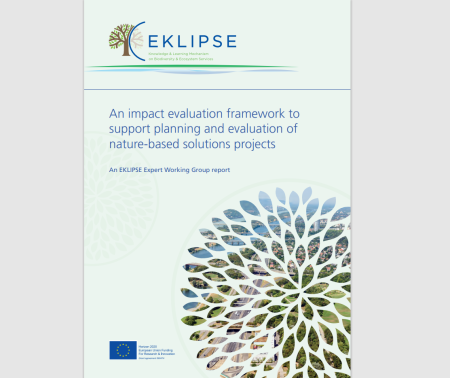
Resource description:
The European Commission requested the EKLIPSE project to help building up an evidence and knowledge base on the benefits and challenges of applying NbS. In response to the request, the EKLIPSE Expert Working Group on Nature‐based Solutions to Promote Climate Resilience in Urban Areas (EWG) devised the following objectives:
1) To develop an impact evaluation framework with a list of criteria for assessing the performance of NbS in dealing with challenges related to climate resilience in urban areas;
2) To prepare an application guide for measuring how NbS projects fare against the identified indicators in delivering multiple environmental, economic and societal benefits;
3) To make recommendations to improve the assessment of the effectiveness of NbS projects, including the identification of knowledge gaps according to the criteria presented in the impact evaluation framework.
This document reports on these three objectives. It is intended to be used as a reference document by members of current and future European projects with an interest in NbS in urban areas, and by practitioners seeking to compare the effectiveness of NbS design, implementation and evaluation. The EWG recognises that the type and intensity of NbS impacts may vary according to the characteristics of the NbS and the context in which they are applied. The intent of this report is not to define NbS, but rather provide examples of indicators and methods for assessing impacts of NbS that may be applied in a range of different ways across urban areas in Europe. As such, the report also identifies the scale at which the indicators are relevant, to guide an assessment of impacts
Author/Contact:
EKLIPSE
Licence:
- Free, no licence